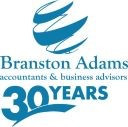
Welcome to our round up of the latest business news for our clients. Please contact us if you want to talk about how these updates affect your business. We are here to support you!
Being resilient by choice is critical for both survival and for strategic advantage in an era where disruption is the norm. The threats businesses face today are complex and becoming more frequent than in previous times. We have seen a pandemic, an ongoing war in Europe with supply chain issues, a cost of living crisis, extreme weather and frequent ongoing cyber-attacks.

These events are more interconnected than before the Pandemic, and resilience is now critical for maintaining consumer and stakeholder trust. Many leading businesses are now making resilience a strategic aim to look at how they make the right investments in technology, talent and data.
Here are some practical thoughts that may help you think about resilience in a more strategic way:
Our most successful clients are redesigning how they look at risk and using new predictive technology to play out scenarios to remain resilient in the future.
Please talk to us about the practical steps you can take, such as real time information, preparing budgets and “What if” analysis.
See: Guide to building business resilience (british-business-bank.co.uk)
The Working Minds campaign has been created by the Health and Safety Executive (HSE), Britain’s national regulator for workplace health and safety that is committed to improving the health of workers.
Tackling stress isn’t just the right thing to do, it’s a legal obligation. Working Minds can help you make it a routine priority for your business.
There are three main reasons employers should be looking to prevent stress and support good mental health in business:
Whether you’re a small business or a large corporation, the law requires all employers to prevent work-related stress to support good mental health in the workplace.
It’s important to remember that in the end we’re all just people – and every one of us faces pressures in and out of the workplace. By treating each other with respect and compassion at work we support our teams and colleagues to stay well.
The earlier a problem is tackled the less impact it will have for the person and your business. Stress affects people differently – what stresses one person may not affect another. Factors like skills and experience, age, or disability may all affect someone’s ability to cope.
You can get started today with these 5 steps:
If you think that a worker is having problems, encourage them to talk to someone, whether it’s their line manager, trade union representative, GP, or their occupational health team.
See: Working Minds Employers - Work Right to keep Britain safe
HMRC have released a new online tool to help taxpayers understand what their tax code means.
Tax codes are used by HMRC to tell an employer how much income tax to withhold through the “Pay as you earn” (PAYE) system. A person’s tax code can change from time to time, based on their personal circumstances. If it does, HMRC will inform the taxpayers of their new tax code by post or through their personal tax account.
You can use this tool to find out what the numbers and letters in your tax code mean and how much tax you will pay. To check what your tax code means, you will need your:
See: Check what your tax code means - GOV.UK (www.gov.uk)
If you need to change your tax code, you can use another HMRC online tool entitled “Check your Income Tax for the current year”. The service covers the current tax year (6 April 2023 to 5 April 2024). You can use this service to:
To check your Income Tax, you’ll need to sign into your personal tax account using your Government Gateway user ID and password.
If you do not have a personal tax account
You need a Government Gateway user ID and password to set up a personal tax account. If you do not already have a user ID, you can create one when you sign in for the first time.
You’ll need your National Insurance number or postcode and 2 of the following:
See: Check your Income Tax for the current year - GOV.UK (www.gov.uk)
The National Cyber Security Centre (NCSC) states that UK organisations should prepare for an extended period of heightened cyber security threat. It has guidance for organisations on the steps to take to improve security.
The guidance is designed to be applicable to any period of sustained heightened cyber threat, including the one arising from Russia in light of events in and around Ukraine.

The NCSC says that the cyber threat to the UK remains heightened and they expect it to stay that way for some time.
The NCSC guidance aims to help organisations avoid complacency and staff burnout. It advises that increased workloads for cyber security staff over an extended period can harm wellbeing and lead to lower productivity, with a potential rise in unsafe behaviours or errors.
The recommended actions in the guidance include:
See: Maintaining a sustainable strengthened cyber security posture - NCSC.GOV.UK
The SME Climate Hub is here to help small businesses deliver on their climate goals and they have developed free, practical resources specifically tailored to support SMEs on their net zero journey, through strategic emission reductions and opportunities for climate leadership.
Businesses can calculate their emissions with the Business Carbon Calculator, learn how to take action with the Climate Fit education course, and access support through the Financial Support guide and 1.5°C Business Playbook.
Research shows that such measures can significantly save companies on their overheads. For example:
The new support is aimed particularly at 5.5 million small and medium sized businesses (SMEs) in the UK, with business and industry accounting for around 25% of emissions. Research shows that 90% of SMEs are keen to tackle climate change but find it difficult to know how or where to start to find the right solutions to reduce their carbon footprint.
Studies also show 85% of consumers are more likely to buy from a business with a reputation for sustainability, meaning going green can help grow the economy.
The SME Climate Hub has also partnered with Oxford University to provide SMEs with a library of external tools that offer additional support to small businesses taking concrete steps towards climate action.
See: Tools and resources - SME Climate Hub
Innovate UK, part of UK Research and Innovation, will work with micro, small or medium-sized enterprises (SMEs) to invest up to £3.8 million in innovation projects. These will be to support the net zero agenda.

The Design Council will support the implementation of this competition by providing bespoke support to your project.
The aim of this competition is to support ambitious, early-stage growth businesses in developing your net zero products or services to meet demand.
This support will include budget to hire the expertise of living laboratories to test your products or services with end users, so they better meet the requirement of the target market.
Your project must focus on the development of your product or service and demonstrating it in a relevant market. The user focus can be achieved by testing the product or service in a living laboratory and demonstrating results that will both support the net zero agenda and answer a market need. Your total grant funding request must be between £50,000 and £100,000.
The closing date for applications is Wednesday 4 October 2023.
Facial recognition technology (FRT) identifies or otherwise recognises a person from a digital facial image. Businesses can use FRT in a variety of contexts - for example, in allowing access to devices, taking payments, or allowing entry to secure areas.
Depending on the use, FRT involves processing personal data, biometric data and special category personal data. Such technologies can intrude on people's privacy, so businesses need to think carefully when deciding if they should implement them.
If you are a small business looking to begin using facial recognition technology, read the ICO's latest FAQ about using FRT for payment, entry, or other security systems.
The information highlights key issues to be aware of, such as:
See: Additional considerations for technologies other than CCTV | ICO
The Small Business Britain's Small & Mighty Enterprise Programme to help grow small businesses with expert guidance and mentoring is a six-week programme, designed to supercharge sole traders and micro businesses and concludes with a growth plan to support the next year of business opportunity. It will be delivered entirely online, allowing access from anywhere in the UK with flexible learning enabling opportunities for all.
What does the course include?
See: Small Business Britain | Champion. Inspire. Accelerate

At thebestof we go out of our way to champion thebest businesses in each town and city across the UK.
The following Cookies are used on this Site. Users who allow all the Cookies will enjoy the best experience and all functionality on the Site will be available to you.
You can choose to disable any of the Cookies by un-ticking the box below but if you do so your experience with the Site is likely to be diminished.
In order to interact with this site.
To help us to measure how users interact with content and pages on the Site so we can make
things better.
To show content from Google Maps.
To show content from YouTube.
To show content from Vimeo.
To share content across multiple platforms.
To view and book events.
To show user avatars and twitter feeds.
To show content from TourMkr.
To interact with Facebook.
To show content from WalkInto.